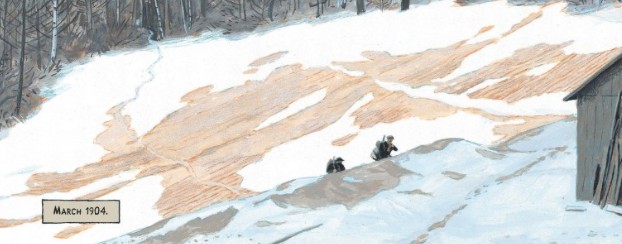
Rejecting modern society to live off-the-grid is a recurring fantasy for many, often during tax season. But what would life really be like? Have there been any success stories in modern history, or did they all end up dying in the woods?
Nicolas Debon answers the question with The Colony, a biographical look at Jean-Claude Fortuné Henry’s libertarian colony “L’Essai” in the French Ardennes forest. Fortuné was an anarchist who defied expectations and inspired the growth of a community “with no masters”. The colony would eventually fall apart after elements of Fortuné’s political past surfaced and sabotaged his community.
Fortuné was a compelling figure, and Debon takes a methodical approach to telling his story that resonates with the libertarian’s slow pace of life. This methodical approach is effective at first, showing Fortuné’s busy work from his moment of arrival to the expansion of the colony. But the approach wears itself out once the story moves into Fortuné’s interpersonal relationships. For the most part, these dynamics consist of dialogue/narrative explicitly describing the handiwork or hardships of the land, or his beliefs and outlook on the injustices of modern society. Some of the book’s highlights are Fortuné’s metaphors linking nature with the struggles of oppression and desire for freedom. Beyond that, we get very little of Fortuné’s interior life. The book glosses over answers to the main question — what led to Fortuné’s change in sentiment about the colony? — either because it ran out of pages, or Debon played it safe out of reverence or the pressures of “sticking to the facts”.
Either way, it’s unfortunate because the reasons behind the colony’s downfall aren’t as obvious as you would think. Fortuné’s past and current urban political unrest are a combustible mix that inspire a new project for the colony. There’s even a suggestion of romantic conflict. The surface qualities of Fortuné’s life were interesting, but there are only so many beats of farming and construction that readers can handle at the expense of learning more about a complex interior life deserving of equal, if not more, attention.
Debon’s artwork is where surfaces truly shine. Evocative pastel colours convey the clean stillness of Fortuné’s dream country. Debon’s minimalist line art for his characters extend the impression of figures close to nature, especially in long-shot panels showing them amid untilled land and untouched snow.
The results are a mixed bag, but one worth checking out.
Nicolas Debon (W/A) Cromatik Ltd (Lettering) Edward Gauvin (Translation) • Europe Comics, €7.49
Available to buy digitally online here
Review by Moe Abbas





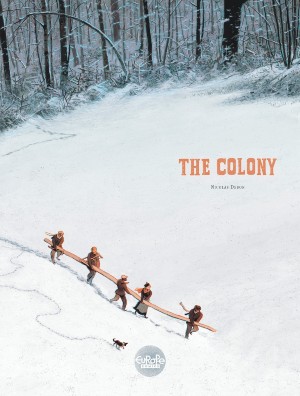
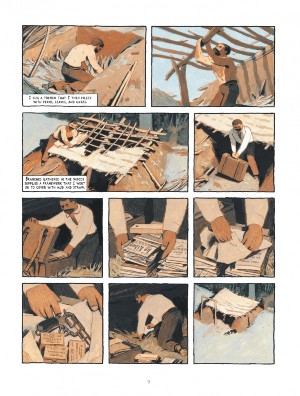
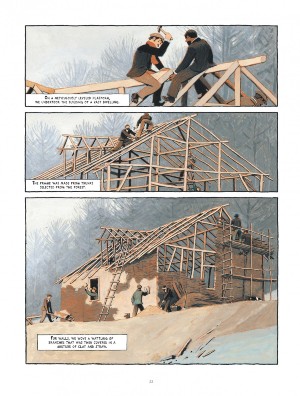
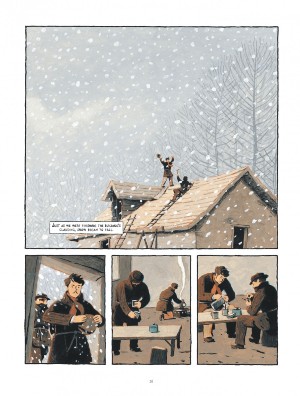
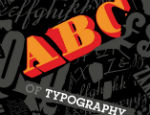
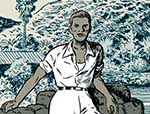
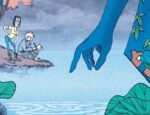



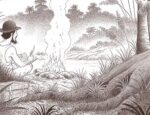



[…] Read at BrokenFrontier.com comics journalism […]